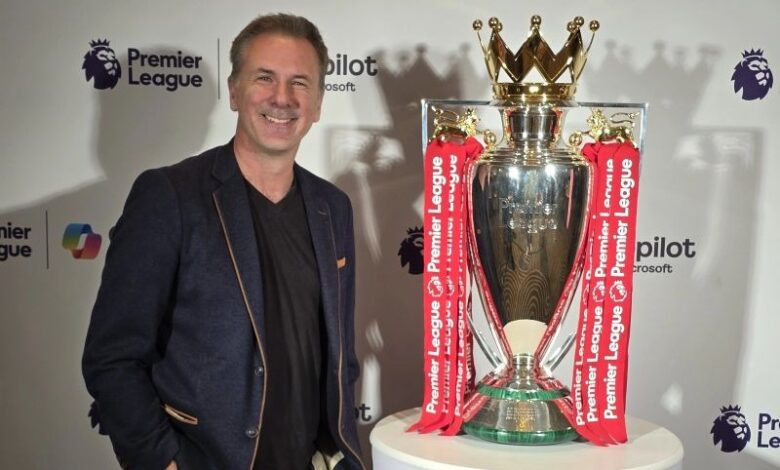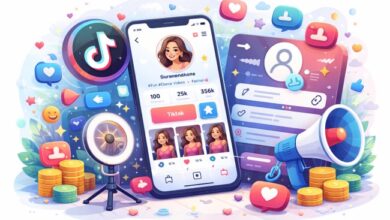Spencer Kelly – The World-Famous Face of Technology and Longest-Serving BBC Tech Presenter

Who Is Spencer Kelly?
Spencer Kelly is a celebrated British television presenter, computer scientist, and keynote speaker, widely known as the lead presenter of the BBC’s technology programme Click. For more than two decades, he has been one of the most trusted and recognisable faces in science and technology broadcasting. His ability to explain complex innovations in a simple, entertaining, and human way has made him a global figure in digital journalism.
Born on 5 July 1973, Spencer Kelly is now 52 years old and continues to be one of the BBC’s most respected communicators in the field of technology and digital transformation. Until the show’s conclusion in March 2025, he fronted Click — the BBC’s flagship programme on technology, the internet, and artificial intelligence — broadcast on BBC World News and the BBC News Channel across more than 200 countries.
Early Life and Education
Spencer Kelly’s journey into the world of science and media began early. He grew up in the United Kingdom with a natural curiosity for how things worked. His first computer, an Acorn Electron, became the foundation of his fascination with coding and computing. By his school years, he was already programming and experimenting with computer systems, while also developing his flair for public speaking through writing, acting, and performing.
He went on to study Computer Science at the University of Cambridge (Churchill College), where he graduated with a Double First-Class Honours degree. During his time there, he managed the university’s radio station, proving that technology and storytelling could go hand in hand. His AI dissertation used genetic algorithms to optimise routes through the London Underground — a project that perfectly reflected his creative and analytical mind.
Later in his career, Coventry University recognised his outstanding contribution to technology communication by awarding him an Honorary Doctorate of Technology.
The Start of a Broadcasting Career
After completing his studies, Spencer Kelly initially considered a traditional computing career. However, his passion for communication and performance led him to broadcasting. He started as a radio travel reporter, often delivering live updates from a light aircraft — a thrilling experience that honed his precision and timing as a communicator.
He soon became a popular breakfast show host on Ocean FM, entertaining audiences with a blend of humour, technology features, and audience interaction. Kelly has often joked about those years, recalling that there was “music, talk, stunts, and the occasional smashing of fruit with power tools.”
Joining the BBC and the Rise of BBC Click
In 2003, Spencer Kelly joined the BBC as an iPresenter, an early experiment in interactive digital presentation. His charisma, deep understanding of science, and sharp wit quickly propelled him into a central role. By 2006, he had become the lead presenter of BBC Click, succeeding the previous host.
Over the next 19 years, he transformed Click into one of the most recognisable technology shows in the world. He wrote, filmed, edited, and presented more than 1,000 episodes, taking viewers on a journey through the most groundbreaking innovations — from AI and robotics to quantum computing, gaming, cybersecurity, and digital ethics.
Click was not just about gadgets; it was about the people and ideas changing the way we live. Under Spencer Kelly’s leadership, the show became known for blending humour with hard-hitting investigations, including the first televised demonstration of a botnet and reports exposing security flaws on major social media platforms.
Spencer Kelly’s Achievements and Recognition
Spencer Kelly’s contribution to technology journalism has been widely recognised. Among his many achievements are:
-
Tech Personality of the Year – for making technology accessible and engaging to the public.
-
Honorary Doctorate of Technology – from Coventry University, recognising his outstanding impact on science communication.
-
Creator of the world’s first 360° television programme, pushing creative boundaries in broadcasting.
-
️ Host of “Understand: Tech & AI”, a popular BBC Sounds and Radio 4 series exploring artificial intelligence and its social impact.
-
Presenter of Panorama and contestant on Celebrity Mastermind, where he humorously admits he “lost by a whisker.”
Spencer has also delivered over 200 keynote speeches worldwide on topics such as AI, the future of work, digital transformation, and sustainability, inspiring audiences with his unique ability to connect technology with human experience.
Spencer Kelly’s View on Technology
Spencer Kelly describes himself as a “technology tourist” — not just fascinated by the latest gadgets but by how innovation shapes societies and human behaviour. Throughout his travels with Click, he has reported from over 50 countries, covering stories such as African villages creating DIY internet networks, Japanese robotics, and AI ethics in Silicon Valley.
While he celebrates innovation, he remains thoughtful about its implications. His journalism often highlights the ethical, environmental, and psychological effects of technology, urging companies and users alike to innovate responsibly. His curiosity is always balanced by scepticism — a hallmark of great science communicators.
Personal Life: Wife, Family, and Interests
Although Spencer Kelly keeps his private life discreet, reliable public sources suggest he has two children – a son and a daughter. He occasionally mentions them in social media posts, reflecting his role as a family man alongside his media commitments.
He currently lives in the Greater Portsmouth area in the United Kingdom. Details about his wife have not been publicly disclosed, as he maintains a clear boundary between his professional and personal worlds — a quality that reflects his humility despite fame.
Outside broadcasting, Spencer has said, half-jokingly, that in his spare time, “I sleep.” However, his love of travel, innovation, and meeting inspiring people continues to drive his work and his worldview.
Legacy and Impact
Over his 22-year career at the BBC, Spencer Kelly has become the face of technology journalism. His storytelling has educated millions, inspired countless young technologists, and bridged the gap between the complex and the comprehensible.
By combining humour, intelligence, and empathy, he has made science accessible to everyone — from students to CEOs. His style has influenced a new generation of communicators who see technology not just as machinery, but as a reflection of humanity itself.
Even after Click ended in March 2025, Spencer continues to present and create content under the BBC umbrella, particularly on AI, digital ethics, and innovation. His relevance in the tech world remains unmatched.
FAQs
1. How old is Spencer Kelly?
Spencer Kelly was born on 5 July 1973, making him 52 years old as of 2025.
2. Is Spencer Kelly married?
Spencer Kelly keeps his personal life private. While he has mentioned having children, no public information confirms his wife’s identity.
3. What is BBC Click and what was Spencer Kelly’s role?
Click was the BBC’s flagship technology and innovation programme, and Spencer Kelly served as its lead presenter for nearly two decades until its final broadcast in March 2025.
4. Why did Spencer Kelly leave BBC Click?
Spencer Kelly announced on Instagram that April 2025 marked his final week at the BBC, expressing gratitude for “the time of my life.” The BBC discontinued Click that same month.
5. What is Spencer Kelly’s Twitter handle?
Spencer Kelly’s official Twitter (X) handle is @spenley, where he shares updates on AI, technology, and media projects.
Conclusion
Spencer Kelly is not just a presenter — he is an educator, innovator, and storyteller. From his early programming days at Cambridge to his pioneering work at the BBC, his career has been a masterclass in curiosity and communication.
At 52 years old, with more than 1,000 broadcasts and two decades of influence, Spencer Kelly remains one of Britain’s most respected voices in science and technology. His legacy reminds us that the most powerful technology of all is human understanding.



